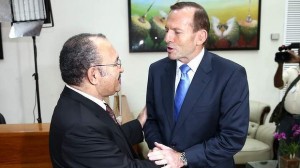By Kathryn Maureen Ryan
Impunity Watch Reporter, Managing Editor
WASHINGTON D.C., United States of America – As they take the field to play the sport they call the Creator’s Game at the Lacrosse World Championships, the Haudenosaunee or Iroquois National Lacrosse Team is playing for much more than a title, they are playing for their standing in the International Community. The team, whose players represent the six Haudenosaunee nations — the Cayuga, Mohawk, Oneida, Onondaga, Seneca and Tuscarora — is the world’s only indigenous team competing as a sovereign nation for the World Lacrosse Championships in Denver. The Iroquois men’s lacrosse team has been competing internationally under the Haudenosaunee flag since 1987 and is the only Native American team officially sanctioned to compete internationally as an independent entity.

For the Haudenosaunee Lacrosse is much more than a game, it is a way of life. Called the Creator’s Game, Lacrosse is a deeply spiritual game and is frequently used for healing purposes and can be summoned by clan mothers on behalf of any person or people who is in need of its healing powers.
“We play for the creator, and the game was put here to please the creator,” said team goalie Marty Ward who grew up in Syracuse New York just outside of the Onondaga Nation reservation and is playing for his third world team. “Every time we pick up a stick, it is a medicine game first.”
Although Lacrosse was born on Haudenosaunee land, the road to representing their people at the Lacrosse world Championships has not been easy for the Iroquois Nationals. Four years ago, the Iroquois Nationals made international headlines when the British government refused to recognize the legitimacy of the Haudenosaunee Passports under which the team was traveling despite the fact that the Haudenosaunee passports have been recognized abroad since 1923 when delegates from the Six Nation’s visited the League of Nations. Secretary of State Hillary Clinton responded by offering the team members one-time travel waivers. While they team was offered expedited United States passport the they refused to accept the offer; Wishing not only to play, but also to travel under their own flag.
As a result of being denied the right to play their own sport at the lacrosse World Championships in Manchester the Iroquois nationals fell in the international rankings and the Federation of International Lacrosse stripped the team of its ability to compete in the coveted top-flight blue division against fellow lacrosse powerhouses including the United States and Canada. The Iroquois Nationals successfully appealed the federation’s decision and regained entry into the blue division in the 2014 world championships. “We’re going to play to win,” Marty Ward said. “We’re going to play with a clear mind, clear heart and a free spirit when we’re out there.”
For more information please see:
ABC News – Iroquois Lacrosse Team Playing for Redemption – 11 July 2014
Al Jazeera America – Fighting For More Than a Win: Iroquois Lacrosse Team Back In Championships – 9 July 2014
Denver Post – Brothers Playing For Nation, Redemption in World Lacrosse Championships – 10 July 2014
Indian Country Today Media Network – Iroquois Nationals Gearing up For World Lacrosse Championships in Denver – 4 July 2014


